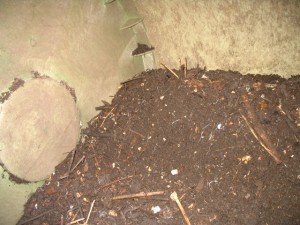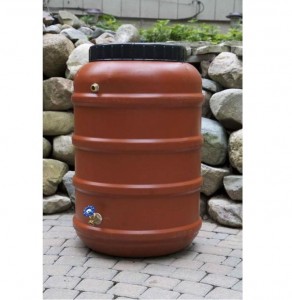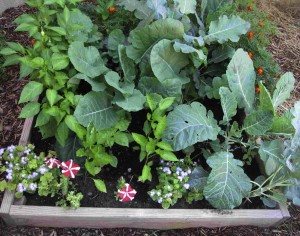
A dear friend of ours has decided to plant a vegetable garden this spring. I’m really excited about sharing gardening advice with him– whether he follows it or not. Look for a series of posts aimed at encouraging the New Gardener.
Dear Mark,
What great news that you are planting a vegetable garden this year! Whether you are gardening to enjoy the freshest food you can, to save money, or to prepare for the upcoming apocalypse, I hope that your kitchen gardening experience is a positive one. May you enjoy both the gardening work and the edible delights that await you.
You mentioned that you are starting your first compost ever; in my opinion, that is something fantastic that you should be especially proud of. One of the essential elements of a thriving garden is the soil. It’s also one of the aspects where the gardener has some control. You can’t do much about the amount or quality sunlight or weather your garden will get. You can always water a garden if it’s needed, but if it rains too much, alas. The soil the one place where your effort can really pay off, especially if you take the long view. Adding compost and other organic matter over time is the best way to build up your soil and to improve the nutrients available to your plants as well as well as the texture. Making your own compost is the most economical way to go.
You said that you are starting your compost in a big plastic bin that you already had. I’m not sure how big it is, but that should work fine for a starter compost. The paver as a weight on the lid is a great idea for keeping guest/pests out since you mentioned the gigantic raccoons of your neighborhood.
Be open to the thought that you may need more space for composting as the season goes on. If you put yard waste like leaves, twigs, grass clippings and spent plants in your compost — and why wouldn’t you?– you might fill up your container. You could consider purchasing a larger bin; you might want to see if your city offers them at a subsidized price. You can also build a simple compost structure, and I’ll write more about that in a future letter.
What can you put in your compost, you asked? In my humble opinion, you can compost just about anything organic. The what-not-to-compost list is easier– so basically we compost everything else except:
* Meat & bones
* Dairy
* Processed foods (junk food… although that usually gets eaten, right?)
* Oils and grease
* Pet feces
* Diseased plants and noxious weeds.
We compost all kitchen waste– peels, cores, leftovers w/o sauces or oil, bread, rice, oatmeal. A rather exhaustive list of more than 92 items we compost can be found on the 20minutegarden site.
Compost might have some smell, but that’s why it doesn’t go right next to the house and why there’s a cover. Also, there’s a balance to strive for between green and brown things you add, basically nitrogen and carbon, that will help keep the smell in check. Any ratio of organic matter will decompose over time, but more brown to green is better, about a 2:1 ratio. Green things are grass clippings, kitchen waste, or manure. For brown, you can add leaves, dried grass, and even shredded paper if you are going that route. Also, you can always put in some dirt too, which will help with decomposition (especially if there are some worms in it) and smell.
As with any human endeavor, you’ll find different schools of thought about compost. Some people set it and leave it alone until it’s done; others turn or stir their compost piles. It’s really up to you. You may want to turn or stir your compost to make sure it’s getting enough oxygen. Again, if you notice unpleasant odors, add a layer of leaves or dirt to the pile.
You mentioned keeping kitchen waste in the freezer until you have a chance to take it outside to your compost. That’s a great idea if you have the space. We keep a bucket container in our kitchen where we store our scraps. Most of the time we don’t use the lid because we empty it often enough that there isn’t any odor. In the summer, we do have to be a little more careful with fruit flies and such, but this time of year, there are no problems.
I get an enormous amount of satisfaction in filling up and emptying the compost bucket in our kitchen. It’s amazing how much waste we generate with just two of us, but the onion skins, potato peels, apple cores, and banana peels do add up. Not only are we rescuing that stuff from being encased in plastic bags in the landfill for years to come (certainly it would breakdown inside garbage bags, but it’s still inside garbage bags…), but we are making our own “black gold”– nutrient-rich compost that will feed our soil, our plants, and eventually us through what we grow.
Good luck with your compost and with your garden!
Love,
Janice





